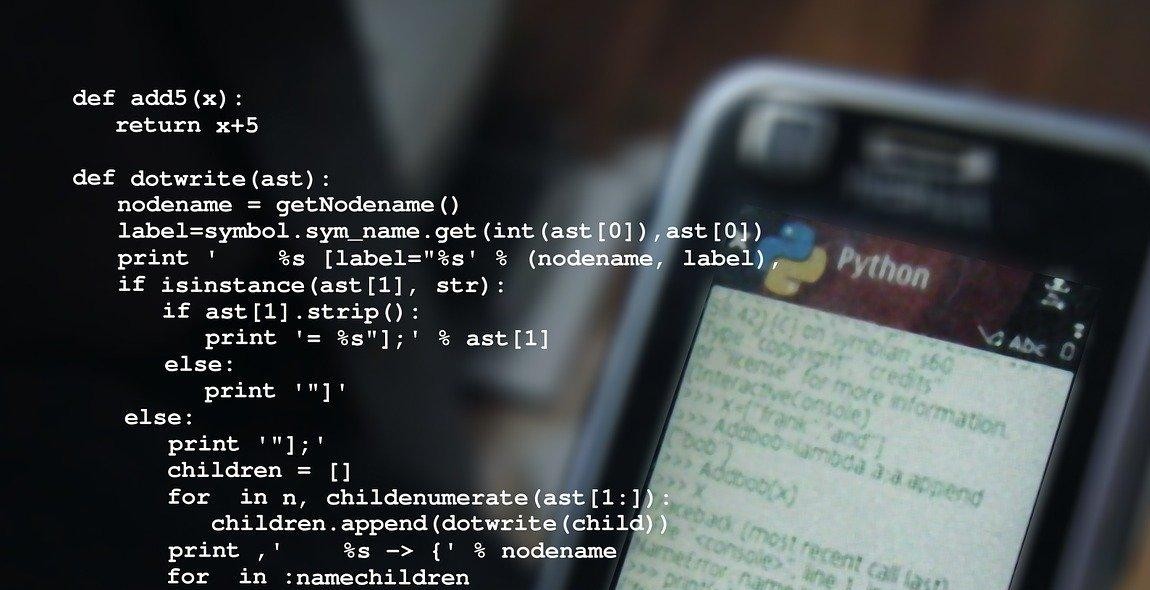How to Develop Smart Contracts using the Python Programming Language
Smart contracts are self-executing contracts with the terms of the agreement between buyer and seller being directly written into lines of code. They are designed to facilitate, verify, and enforce the negotiation or performance of a contract. Smart contracts allow the performance of credible transactions without third parties. They are immutable, meaning that once deployed, they cannot be modified or tampered with. Smart contracts have been widely adopted in various industries, including finance, real estate, and supply chain management.
Python is a powerful programming language that has gained popularity in recent years due to its versatility and ease of use. Python is commonly used for web development, scientific computing, data analysis, artificial intelligence, and more. Python is also a popular language for developing smart contracts due to its simplicity and readability.
In this article, we will explore how to develop smart contracts using the Python programming language. We will cover the basics of smart contracts, the benefits of using Python for smart contract development, and provide a step-by-step guide on how to develop a simple smart contract using Python.
What are Smart Contracts?
Smart contracts are self-executing programs that run on a blockchain network. They are designed to automate the execution of contractual agreements between two or more parties, without the need for intermediaries such as lawyers or banks. Smart contracts are built on blockchain technology, which ensures that they are transparent, secure, and tamper-proof.
Understanding Smart Contracts
Smart contracts are essentially computer programs that are stored on a blockchain network. They contain a set of rules and conditions that are agreed upon by the parties involved in the contract. Once these conditions are met, the smart contract is automatically executed. This means that the terms of the contract are enforced without the need for human intervention.
Smart contracts can be used to automate a wide range of processes, from simple transactions to complex financial agreements. They are particularly useful in situations where trust is an issue, as they eliminate the need for intermediaries and ensure that all parties involved in the contract are held accountable.
Benefits of Smart Contracts
Smart contracts offer a number of benefits over traditional contractual agreements:
- Efficiency: Smart contracts are automated, which means that they can be executed quickly and without the need for intermediaries. This can save time and money, and reduce the risk of errors.
- Transparency: Smart contracts are stored on a blockchain network, which means that they are transparent and tamper-proof. This ensures that all parties involved in the contract can see the terms and conditions, and that they are enforced fairly.
- Security: Smart contracts are secured by blockchain technology, which makes them virtually impossible to hack or manipulate. This ensures that the terms of the contract are enforced as intended, and that all parties involved are held accountable.
- Flexibility: Smart contracts can be customized to meet the specific needs of the parties involved. This means that they can be used in a wide range of industries and applications.
Overall, smart contracts offer a more efficient, transparent, and secure way to execute contractual agreements. As blockchain technology continues to evolve, it is likely that smart contracts will become increasingly popular in a wide range of industries.

Python and Smart Contracts
Smart contracts are self-executing contracts with the terms of the agreement between buyer and seller being directly written into lines of code. These contracts are stored on a blockchain network, which provides a secure and transparent environment for the execution of the contract. The use of smart contracts has become increasingly popular in recent years, and Python is one of the most popular programming languages for developing smart contracts.
Why use Python for Smart Contracts?
Python is a versatile and powerful programming language that is widely used in various fields, including web development, data analysis, and machine learning. When it comes to smart contract development, Python offers several advantages:
- Easy to Learn: Python has a simple and easy-to-learn syntax, making it an ideal language for beginners to start with.
- Large Community: Python has a large and active community that provides support and resources for developers.
- Rich Libraries: Python has a variety of libraries that can be used for smart contract development, making it easier and faster to develop smart contracts.
- Flexibility: Python is a flexible language that can be used for both front-end and back-end development, making it a versatile choice for smart contract development.
Python Libraries for Smart Contracts
Python has several libraries that can be used for smart contract development. These libraries provide pre-built functions and tools that can be used to simplify the development process. Some of the most popular Python libraries for smart contract development are:
| Library | Description |
|---|---|
| Web3.py | A Python library for interacting with Ethereum blockchain. |
| Populus | A smart contract development framework for Ethereum blockchain. |
| SolidityPy | A Python implementation of the Solidity smart contract language. |
| Vyper | A Python-based smart contract language that is designed to be more secure than Solidity. |
These libraries can be used to develop various types of smart contracts, including financial contracts, supply chain contracts, and voting contracts.

How to Develop Smart Contracts using Python
Smart contracts are self-executing contracts with the terms of the agreement between buyer and seller being directly written into lines of code. They allow for the automation of complex processes and the reduction of transaction costs. Python is a popular programming language for smart contract development due to its simplicity and versatility. In this guide, we will walk you through the steps of developing smart contracts using Python.
Step 1: Setting up the Environment
The first step is to set up the development environment. You will need to install the following tools:
- Python: Download and install Python from the official website.
- Ganache: Ganache is a personal blockchain for Ethereum development. Download and install Ganache from the official website.
- Web3.py: Web3.py is a Python library for interacting with Ethereum. Install it using pip.
Once you have installed these tools, you can start writing your smart contract code.
Step 2: Writing the Smart Contract Code
Python provides a simple syntax for writing smart contracts. Here is an example:
| pragma solidity ^0.4.0; |
| contract MyContract { |
| uint myVariable; |
| function setMyVariable(uint _myVariable) { |
| myVariable = _myVariable; |
| } |
| function getMyVariable() constant returns (uint) { |
| return myVariable; |
| } |
| } |
This code creates a simple smart contract with a single variable and two functions to set and get its value. Once you have written your smart contract code, you can compile it using the Solidity compiler.
Step 3: Deploying the Smart Contract
The final step is to deploy your smart contract to the Ethereum blockchain. Here is an example:
- Connect to Ganache using Web3.py:
- Compile your smart contract code:
- Deploy the smart contract:
- Use Python libraries and frameworks to develop smart contracts
- Python’s simplicity and readability make it easy to write and maintain smart contracts
- Python offers a range of tools for testing and debugging smart contracts
- Python is a versatile and powerful programming language for smart contract development
| from web3 import Web3 |
| web3 = Web3(Web3.HTTPProvider(‘http://localhost:7545’)) |
| from solc import compile_source |
| contract_source_code = ‘pragma solidity ^0.4.0; contract MyContract { uint myVariable; function setMyVariable(uint _myVariable) { myVariable = _myVariable; } function getMyVariable() constant returns (uint) { return myVariable; } }’ |
| compiled_sol = compile_source(contract_source_code) |
| contract_interface = compiled_sol[‘<stdin>:MyContract‘] |
MyContract = web3.eth.contract(abi=contract_interface[‘abi’],
ConclusionIn conclusion, developing smart contracts using the Python programming language is a viable option for individuals and organizations looking to leverage the benefits of blockchain technology. Python offers a range of libraries and frameworks that make it easy to write, test, and deploy smart contracts. One of the key advantages of using Python for smart contract development is the language’s simplicity and readability. This makes it easier for developers to write and maintain smart contracts, even if they don’t have extensive experience in blockchain development. Python also offers a range of tools for testing and debugging smart contracts, which can help to identify and resolve issues early in the development process. This can help to reduce the risk of errors and ensure that smart contracts are secure and reliable. Overall, Python is a versatile and powerful programming language that is well-suited for smart contract development. By leveraging Python’s strengths, developers can create smart contracts that are efficient, secure, and easy to maintain. As blockchain technology continues to gain traction, the demand for smart contract developers is likely to increase. By learning how to develop smart contracts using Python, developers can position themselves for success in this emerging field. |
